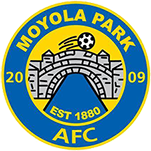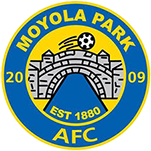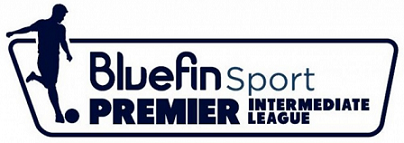 History of Moyola Park F.C
History of Moyola Park F.C
A Potted History
Moyola Park Association Football Club was formed during season 1879/1880 under the patronage of Lord Spencer Chichester, the landlord of the Moyola Park estate. The club’s pitch has been in the grounds of the estate ever since. The first recorded game was a friendly at home against Cliftonville FC, Belfast on 14 February 1880, in which the visitors recorded a 3-0 victory. Lord Spencer Chichester was the inaugural president of the fledgling Irish Football Association, which was formed in November 1880. On 9 April 1881 Moyola Park became the first winners of the Irish Football Association’s Challenge Cup, defeating Cliftonville by 1-0 in the final, from an initial entry of seven clubs, the founder members of the Association. The gate receipts on that day were £8-00. Four of the players in the squad, William Morrow, William Hueston, George Hewison and Arthur Gaussen between them earned thirteen international caps, and Morrow had the distinction of scoring Ireland’s goal against Wales in a 1-1 draw played in March 1882, the first occasion on which Ireland managed to avoid defeat in an international.
After those prestigious early days the club had a much more mundane existence, choosing not to enter the Irish League which was formed in 1890. The club continued to play friendly games as well as cup matches. In the early years of the twentieth century the club played in a local league in South Derry and it continued to do so until World War Two, with the exception of season 1929/1930 during which the club participated in the Belfast based, Minor League. After World War Two, Moyola Park successfully competed in the newly formed Ballymena and District Junior League, from its inception in season 1948/1949 through to season 1977/1978, with the exception of season 1950/1951, when the club participated in the now defunct Irish Football Alliance. During the Ballymena Junior League era the club won the league championship outright on five occasions, 1948/1949, 1949/1950, 1973/1974, 1976/1977, 1977/1978 and shared the championship in 1959/1960 with Ballymoney United. During this period Moyola Park, managed by Billy Lennox and captained by Raymond Collins, won the prestigious Irish Football Association’s Junior Challenge Cup in successive seasons, 1972/1973 and 1973/1974.
With the formation of the Northern Ireland Intermediate Football League in 1978/1979 the club embarked upon a new era, participating in intermediate football. The club gained admission to the Irish Football League ‘B’ Division, later known as the Second Division, in season 1991/1992. Managed by, former club player, Kenny Shiels, from January 1999 to December 2000, the club enjoyed one of its most successful spells ever. Kenny guided the team to victory in the Second Division’s prestigious Smirnoff Cup towards the end of season 1999/2000 and the Craig Memorial North West Intermediate Cup on Boxing Day 2000 and Moyola Park finished season 2000/2001 as runners-up in both the Irish Football League Division Two and the Irish Football Association’s Intermediate Cup. The following season, 2001/2002 new manager Eric Halliday, ably assisted by Alfie Stewart, guided the team to retain the Craig Memorial North West Intermediate Cup and on to the club’s greatest success to date the Irish Football League Division Two title. One of the highlights of season 2001/2002 was the Nationwide Irish Cup Sixth Round game at Coleraine in which Neil Murdock, Cairon Mallon and Brian Martin goals saw Moyola Park take the then Irish League Premier Division leaders to a replay in which Neil Murdock again scored before the side lost 5-1 to a Coleraine side which went on to qualify for the semi-finals of the competition.
The following season, 2002/2003 the club achieved the unique record of winning the Craig Memorial Cup for a third successive year under three different managers. Tommy Gowdy having continued what Kenny Shiels and Eric Halliday had started. The season ended with Moyola Park clinching the final promotion place in the revamped Irish Football League First Division by winning 2-0 at Donegal Celtic with goals from Rodney Hassan and Paul Trainor. On Boxing Day 2004 Moyola Park won the Craig Cup for the fourth time in five seasons, with club captain Seamus Quinn hoisting the trophy for a fourth time, under a fourth different manager, Paul Trainor. The club places a strong emphasis on youth and a Mini Soccer Centre was established in June 2003. Shortly afterwards a successful under13 side managed by Tommy Hueston and John McKee set the standard for the club’s policy of providing youth football right through to under 18 level in the coming years. A successful Moyola Park Ladies side was established in 2001. One of the players Sarah McFadden gained international recognition at under19 level.
In 2005 the club applied for planning permission to develop a new ground at Mill Meadow close to the historic old ground which has been used for over 125 years. An application has also made to the Sports Council of Northern Ireland Building Sport Lottery Fund. It is hoped that before the end of 2005 both of these applications will have been successful and Moyola Park Association Football Club will be enabled to provide excellent facilities not only to meet the criteria of the soon to be established IFA Premier Intermediate League but also to provide a sound footing for the development of football for all at the grassroots from Mini Soccer right through to adult level for both men and women.
On Friday 16th January 2009 the first sod of the ground at the Mill Meadow was officially cut by the Chief Executive of Sport NI and Club President, Mr A Martin.
Moyola Park played there first competitive game at the Mill Meadow on Saturday 16th January 2010 against Lurgan Celtic in the Ladbrokes.com Championship 2. The game finished 2-0 to the home side with local lad Mervyn Pattison having the honour of scoring the first goal and also the misfortune of being the first player to be sent off at the Mill Meadow.
The Mill Meadow was officially opened on Saturday 31st July 2010 by former players Arthur Martin and Barney Devlin.










